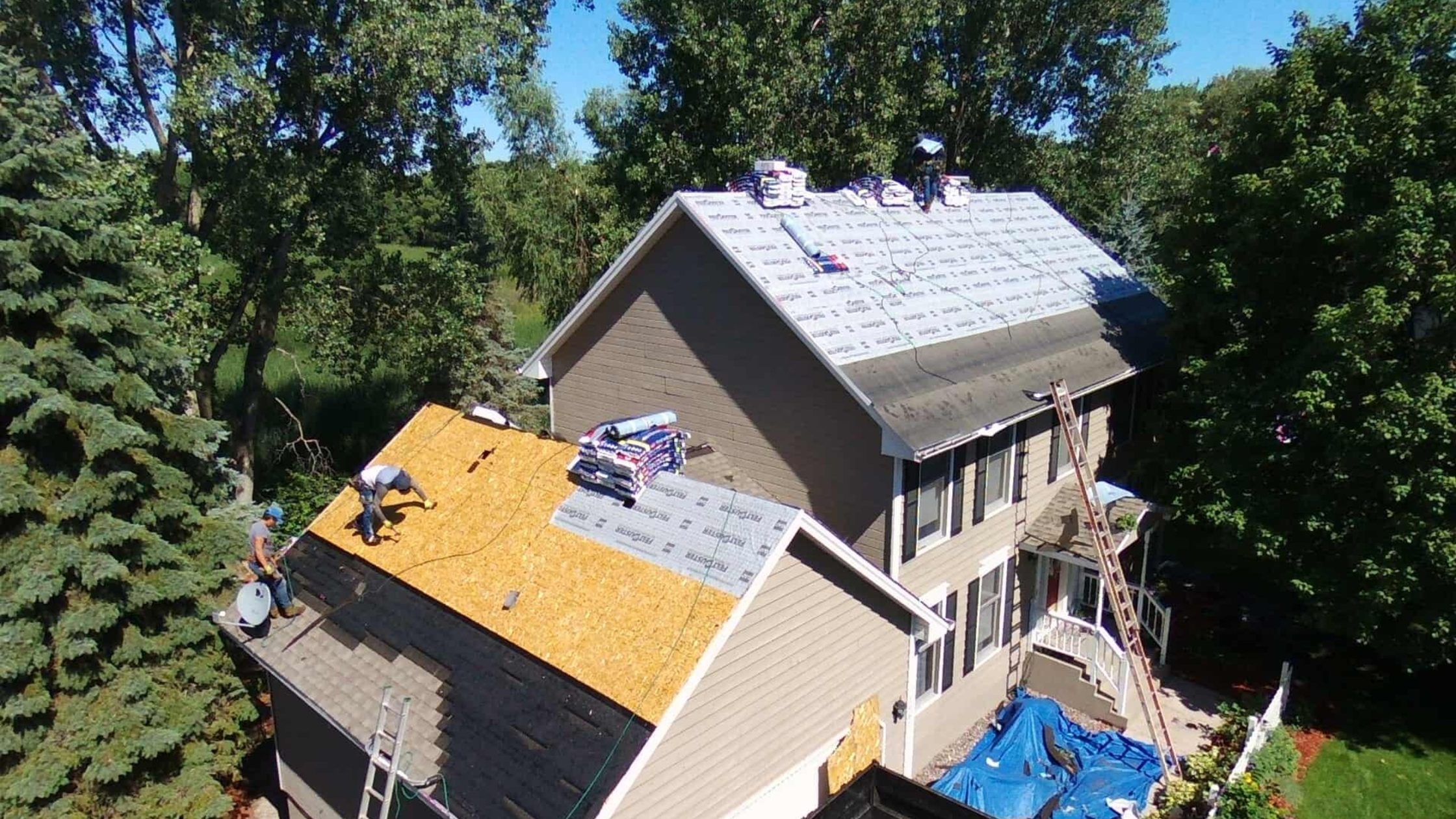As a roofing contractor in Florida, it is crucial to stay informed about legislative changes. It will help your company maintain compliance and optimize your operations and services.
One such change was the repeal of the 25% Roof Replacement Rule, which was replaced by Senate Bill 4-D. In this blog, we’ll dive into these laws, their implications for roofing contractors, and how you can successfully navigate these changes in the roofing industry.
Understanding Florida’s 25% Roof Replacement Rule
Prior to May 26, 2022, Florida’s 25% Roof Replacement Rule mandated that if more than 25% of a roof required repair or replacement, the entire roof had to be brought up to current Florida Building Code standards. This often led to costly full roof replacements, even when only a small portion of the roof was damaged.
The Introduction of Senate Bill 4-D
When Senate Bill 4-D was enacted on May 26, 2022, it eliminated the 25% Roof Replacement Rule. Under the new bill, if a roofing system was built, repaired, or replaced in compliance with the 2007 Florida Building Code or any newer editions, then only the damaged portion of the roof would need to be constructed in accordance with the current Florida Building Code.
The rest of the roof does not need to be brought up to current code standards. However, any roofs not compliant with the 2007 code would need to be fully replaced and brought up to current standards as long as 25% or more of the roof needed repair (essentially, non-compliant roofs still need to abide by the 25% Roof Replacement Rule).
Most roofs built or replaced after March 1, 2009 (the date the 2007 Florida Building Code went into effect) are likely compliant with the 2007 code and, therefore, not subject to full replacement. Homeowners only need to repair the damaged areas, saving them money, time, and disruption to their living space.
Key Differences Between the 25% Rule and Senate Bill 4-D
| 25% Roof Replacement Rule | Senate Bill 4-D | |
| Applicability | Applied to all roofing systems | Applies only to roofs built or renovated post-2009 (the effective date of the 2007 building code) |
| Requirement for Full Replacement | Mandated if over 25% of roof was damaged | Only the damaged portion needs to comply with current code |
| Cost Implications | Often led to higher costs due to full replacements | Potentially reduces costs by allowing partial repairs |
| Code Compliance | Entire roof needed to meet current code | Only the repaired portion needs to meet current code |
The Law’s Implications for Roofing Contractors
- Determining Roof Age and Compliance
With the repeal of Florida’s 25% Roof Replacement Rule, contractors need to know a roof’s age and whether it is compliant with the 2007 building code prior to taking on the project. This will determine if a full replacement is required by law or just a repair.
This will help aid the contractor in discussions with the homeowner and deciding on the best path forward. It’s possible a full replacement may still be wanted to ensure longevity and to bring the entire roof up to the latest Florida Building Code.
- Understanding Roof Section Definitions
The Florida Building Code defines a “roof section” as a division of a roof area by existing expansion joints, parapet walls, flashing, differences in elevation, roof type, or legal description. This definition is crucial for contractors to understand as it helps to determine whether the 25% threshold applies to a non-compliant roof.
- Insurance Considerations
Insurance companies may have varying policies regarding roof replacements. Some may still require full replacements if a significant portion of the roof is damaged, even if the law does not mandate it. It’s essential for contractors to understand these policies and communicate effectively with both homeowners and insurers.
- Documentation and Record
Proper documentation is vital. Roofing contractors should maintain detailed records of inspections, repairs, and communications with homeowners and insurance companies to ensure compliance and protect against potential disputes.
Navigating the New Landscape
Roofing contractors in Florida must stay ahead of the curve when it comes to understanding the laws and regulations governing their industry. With changes like Senate Bill 4-D replacing the former 25% Roof Replacement Rule, it’s essential to be informed and adaptable. Not only does knowing these laws ensure compliance, but it also helps contractors deliver the best possible service to their clients while avoiding potential legal or financial pitfalls.
Being aware of the legal framework surrounding roof repairs and replacements also empowers contractors to make informed decisions, protect their businesses from liability, and provide accurate guidance to homeowners navigating the complexities of insurance claims and building codes.
To effectively navigate these new regulations, roofing contractors should:
- Stay Informed: Regularly review updates to the Florida Building Code and related legislation. For note, the Florida Building Code is updated every 3 years.
- Maintain Clear Communication with Clients: Inform homeowners about the new regulations and how they impact their roofing projects.
- Enhance Skills & Adapt Business Practices: Consider further training to stay competitive, compliant, and knowledgeable as the market and laws change. This knowledge will not only help contractors operate more smoothly but will also enhance their reputation and reliability within the roofing industry.
If you’re looking to become a certified roofing contractor in Florida or wish to expand your expertise, Gold Coast School of Construction offers comprehensive courses to help you achieve your goals. Our Florida Roofing License Courses provides the necessary training and resources you need to build a successful career in this dynamic industry.

